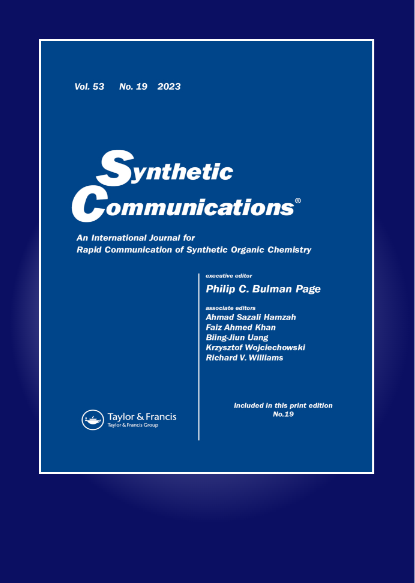Synthesis of 1H-benzimidazoles via the condensation of o-phenylenediamines with DMF promoted by organic acid under microwave irradiation
IF 1.8
3区 化学
Q3 CHEMISTRY, ORGANIC
引用次数: 0
Abstract
An effective, green and eco-friendly method was developed to synthesize 1H-benzimidazole under microwave irradiation. The reactions of substituted o-phenylenediamine with DMF were efficiently promoted by butanoic acid, and the desired product 1H-benzimidazole derivatives were obtained in good to excellent yields. Compared with the conventional heating method, microwave irradiation significantly reduced the reaction time and improved the yields of the target products.
微波辐照下有机酸促进邻苯二胺与 DMF 缩合合成 1H 苯并咪唑
开发了一种在微波辐照下合成 1H-苯并咪唑的有效、绿色和环保方法。取代的邻苯二胺与DMF的反应能有效地促进1H-苯并咪唑的合成。
本文章由计算机程序翻译,如有差异,请以英文原文为准。
求助全文
约1分钟内获得全文
求助全文
来源期刊

Synthetic Communications
化学-有机化学
CiteScore
4.40
自引率
4.80%
发文量
156
审稿时长
4.3 months
期刊介绍:
Synthetic Communications presents communications describing new methods, reagents, and other synthetic work pertaining to organic chemistry with sufficient experimental detail to permit reported reactions to be repeated by a chemist reasonably skilled in the art. In addition, the Journal features short, focused review articles discussing topics within its remit of synthetic organic chemistry.
 求助内容:
求助内容: 应助结果提醒方式:
应助结果提醒方式:


